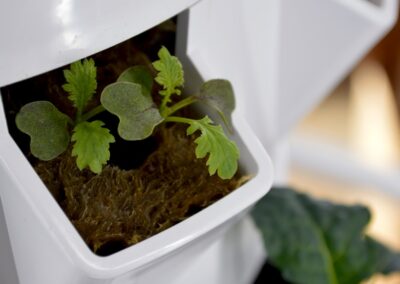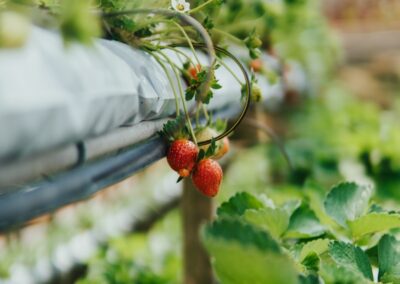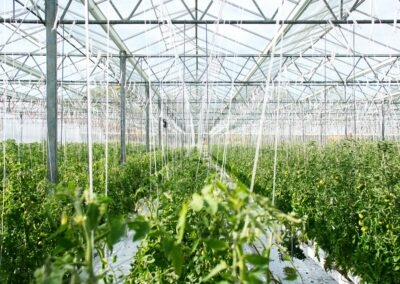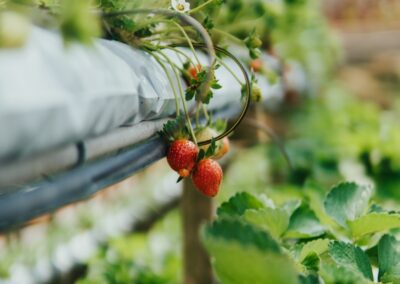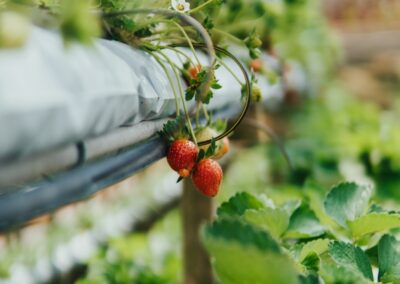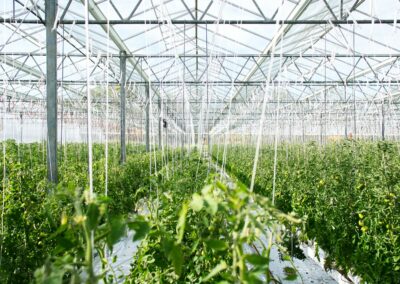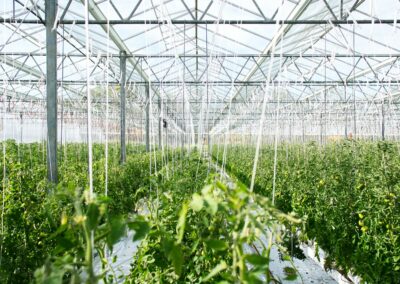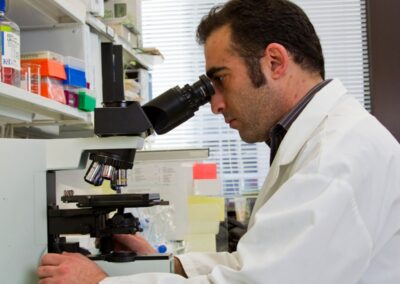Revolutionizing Urban Agriculture with Aquaponics
Innovative Approaches to Urban Food Production
The integration of aquaponics in sustainable food production is transforming urban and peri-urban agriculture, particularly in cities like Riyadh, Dubai, and other metropolitan areas in Saudi Arabia and the UAE. Aquaponics, a system that combines aquaculture (raising fish) with hydroponics (growing plants in water), creates a symbiotic environment where both plants and fish thrive. This innovative approach offers numerous benefits, including resource efficiency, reduced environmental impact, and enhanced food security.
Aquaponics systems are highly efficient, utilizing recirculating water systems that minimize water waste and maximize nutrient use. The waste produced by the fish is converted into nutrients for the plants, while the plants help to filter and purify the water for the fish. This closed-loop system reduces the need for chemical fertilizers and pesticides, making it a sustainable and environmentally friendly option for food production in urban areas.
For business executives and entrepreneurs, aquaponics presents a unique opportunity to invest in sustainable agriculture. The growing demand for locally produced, fresh, and sustainable food makes aquaponics an attractive business model. By leveraging this technology, businesses can meet consumer demands while contributing to the sustainability goals of urban centers like Riyadh and Dubai.
Supporting Local Food Systems
Aquaponics supports the development of local food systems by enabling the production of fresh, nutritious food within urban and peri-urban areas. This localized approach to food production reduces the dependence on imported food, shortens supply chains, and minimizes the carbon footprint associated with food transportation. In regions like Saudi Arabia and the UAE, where arable land is limited and water resources are scarce, aquaponics offers a viable solution to enhance food security.
By producing food locally, aquaponics systems can provide a steady supply of fresh produce and fish year-round, regardless of external factors such as climate or seasonal changes. This consistency is crucial for urban areas that face challenges related to food supply and distribution. Additionally, local food production supports the local economy by creating jobs and stimulating economic activity within the community.
For mid-level managers and project leaders, the implementation of aquaponics systems requires effective management skills and strategic planning. Ensuring the successful operation of these systems involves careful monitoring of water quality, nutrient levels, and fish health, as well as optimizing the growth conditions for plants. By adopting best practices in aquaponics management, businesses can maximize their productivity and profitability while contributing to local food security.
Enhancing Food Security
Food security is a critical issue for many urban areas, especially in regions with limited agricultural resources. Aquaponics enhances food security by providing a reliable and sustainable source of food that can be produced locally. This reduces the vulnerability of urban populations to disruptions in food supply chains and increases their resilience to external shocks such as climate change, economic instability, or global pandemics.
In cities like Dubai and Riyadh, where rapid urbanization and population growth place additional pressure on food systems, aquaponics offers a sustainable solution to meet the increasing demand for food. By integrating aquaponics into urban planning and development strategies, policymakers can support the creation of resilient food systems that ensure the availability of fresh, nutritious food for all residents.
For business leaders, the adoption of aquaponics aligns with corporate social responsibility (CSR) initiatives and sustainability goals. By investing in aquaponics, companies can demonstrate their commitment to sustainable development and contribute to the well-being of their communities. This not only enhances their reputation and brand value but also creates long-term benefits for society and the environment.
Effective Change Management in Aquaponics Adoption
The successful implementation of aquaponics systems in urban agriculture requires effective change management strategies. Business leaders must be adept at navigating the complexities of transitioning from traditional farming methods to innovative, technology-driven approaches. This involves investing in new infrastructure, training staff, and fostering a culture of innovation within the organization.
Executive coaching services can provide valuable support during this transition, helping leaders develop the skills and mindset needed to lead their teams through change. This includes effective communication, strategic planning, and the ability to manage resistance to change. In urban centers like Riyadh and Dubai, where the agricultural landscape is rapidly evolving, strong leadership is essential for driving the successful adoption of aquaponics systems.
Change management also involves educating and training staff to operate and maintain aquaponics systems. This ensures that the workforce is equipped with the knowledge and skills needed to maximize the benefits of this innovative farming method. By investing in human capital, businesses can enhance their operational efficiency and achieve long-term success.
#Aquaponics #SustainableFoodProduction #LocalFoodSystems #UrbanAgriculture #FoodSecurity #SaudiArabia #UAE #Riyadh #Dubai #ChangeManagement #ExecutiveCoaching #EffectiveCommunication #BusinessSuccess #ManagementConsulting #ArtificialIntelligence #Blockchain #TheMetaverse #GenerativeAI #LeadershipSkills #ManagementSkills #ProjectManagement



